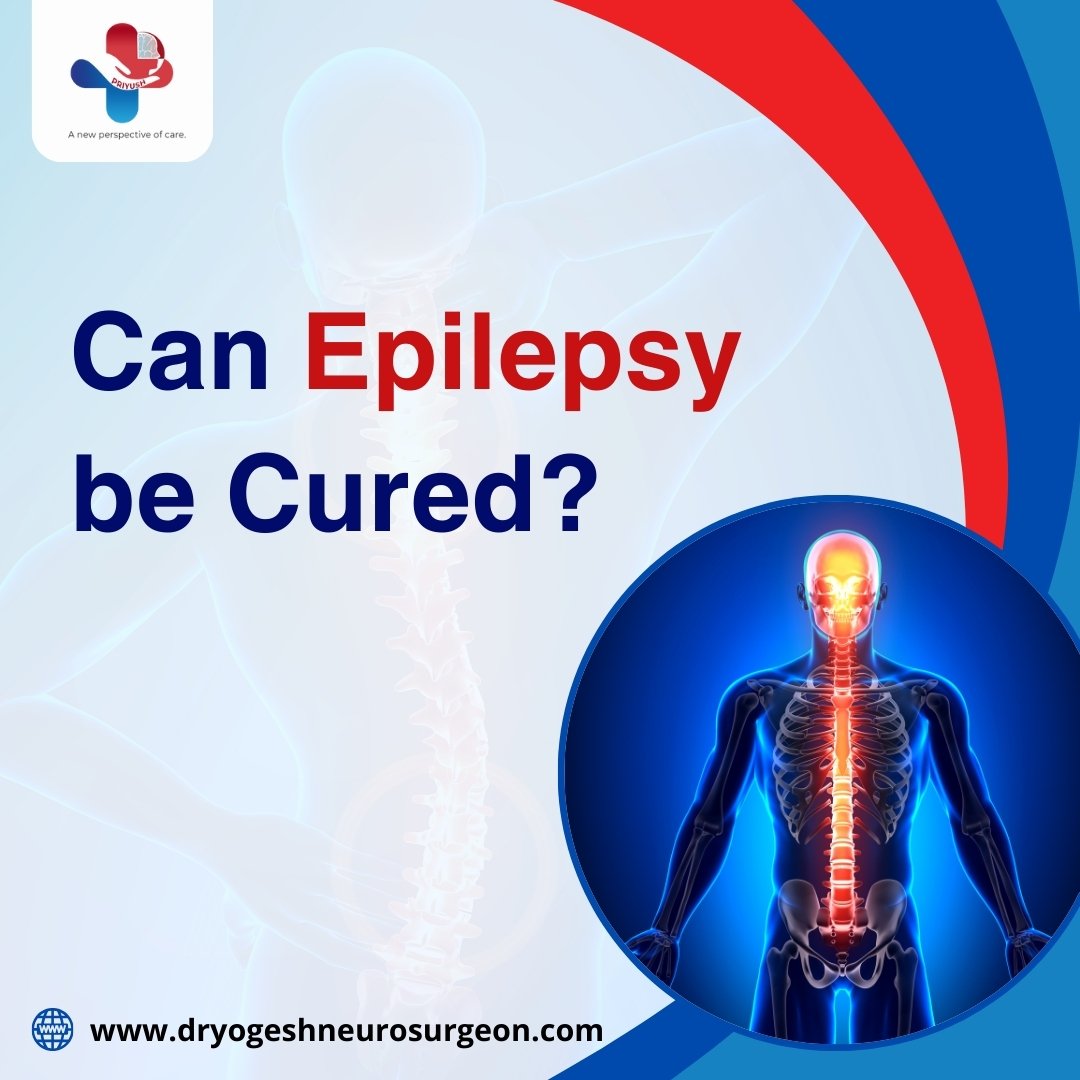
Can Epilepsy Be Cured?
Epilepsy is a neurological disease that affects people the world over without discrimination because of sex or age. Episodes of uncontrolled seizures mark it because of the abnormally generated electrical signals in the brain. Epilepsy truly is a generalised condition and the manifestations of it can be very different based on what type of phase is in play and the areas of the brain being affected. These symptoms are thus important to identify since they help in early diagnosis of the ailment. However, in this article, readers will learn about the five signs of epilepsy and consider consulting the Best Brain Surgeon in India.
1. Seizures: The Primary Indicator
The sign of epilepsy is in which the patient has an event or series of events that indicate epilepsy. Epilepsy is an unplanned electrical activity of the brain that may cause a change in physical and or behavioural movements in an individual. There are various types of seizures, and these are as follows; Focal seizures, Generalised seizures, and Absence seizures.
• Focal Seizures: These convulsions originate from one component of the brain only. They can also bring about alterations in sensations, feelings, or even a state of consciousness. For instance, a flash of fear, a taste, or a tingle that comes out of nowhere and centers itself in an area of the body. Focal seizures may convert into generalised seizures, where the entire brain is involved in the seizures.
• Generalised Seizures: These kinds of seizures engage the whole brain at the onset and entail a loss of consciousness besides muscle stiffening and jerks. In cases of a generalised convulsive seizure, the most frequent one is a tonic-clonic seizure, previously called grand mal seizure.
• Absence Seizures: Also referred to as ‘staring spells, ’ absence seizures are more common in children and lead to temporary loss of consciousness. E incorporation may occur where a person momentarily loses focus and gazes into space with a blank expression, then goes back to what he or she was doing without recollection of the episode.
If you or someone close to you is in a seizure, you must seek medical advice from a Brain Surgeon in India to find the root causes of the occurrence and the best treatment procedures.
2. Unusual Sensations and Feelings
Some things reported by people with epilepsy include the aura of sensations and feelings before or during a seizure. It does this by altered sensations called ‘auras’ whereby it warns an individual that a seizure is about to happen.
Auras can manifest in different ways, depending by the brain involved:
• Visual Disturbances: Some people may notice glares, or even colours or forms which are not existent or are non-existent in the exterior environment. This signal abnormality is called a visual aura and usually begins in the occipital region of the brain.
• Auditory Hallucinations: Hearing sounds that others can't, like ringing, buzzing, or even voices, characterises auditory aura.
• Déjà vu: A feeling of complete familiarity with a situation that is entirely new and unknown can be seen as an aura. This sensation is like a feeling of déjà vu.
• Gustatory or Olfactory Sensations: It can cause some symptoms such as tasting things that are not physically there or having an odour that does not exist in a physical context.
It is essential for people having these unusual sensations to know about them and seek the help of the best brain surgeon in India because they may carry essential hints for detecting epilepsy and choosing the right therapy.
3. Temporary suppression of brain function or ability to be aware of surroundings or environment.
Two more signs of epilepsy include sudden loss of consciousness or rather, the awareness level of a person. Some kinds of seizures can put a person in a state of unresponsiveness to any happening in the environment. It can be dangerous if this happens at a particular time when the person is engaged in other tasks such as driving or operating machinery.
• Complex Partial Seizures: Such seizures cause a transient cortical arrest or absence of consciousness. They can salivate, become unresponsive and even convulse when they have an episode of epilepsy. They may not even remember what happened if it was seizures because of some ailment.
• Tonic-Clonic Seizures: These are the seizures that cause the individuals to pass out as well as have stiff muscles. There are also limbs rhythmic jerky movements. It is known as the clonic phase. Thus, this type of seizure comes into people’s minds.
If a person has a regular practice of falling unconscious or getting unconscious, then you should take that person to a brain surgeon in India.
4. Sudden Unexplained Falls
Unexpected sudden falls attributed to atomic seizures characterised epilepsy. During an atomic seizure, the muscles weaken suddenly, and the person falls without warning. These seizures are known as drop attacks.
• Atonic Seizures: Atonic seizures are brief. They typically last for a few seconds. They're dangerous because they happen suddenly. It can cause falls that can lead to head or body injuries.
• Myoclonic Seizures: Abrupt and brief stiffening characterises Myoclonic seizures or twitching movement of the muscular parts of the body. These seizures rarely lead to a fall, but they affect hand grip and balance making it tough to hold things.
If one or a family member has experienced many falls for no known reason, one should consult the Best Brain Surgeon in India.
5. Confusion and Memory Problems
Seizures cause alterations in cognitive processes, which causes confusion and memory impairment, especially after the attack. The following are some symptoms that one may develop after a seizure: slurred speech, confusion, the inability to recognize familiar people, and even not remembering what happened during the seizure. This postictal phase may be temporary lasting for minutes or hours, depending on the severity and the seizer length.
• Postictal Confusion: Seizures require the brain to rest, which is why it is necessary to avoid any exerting activities after the epilepsy episode. During this period, the patient may manifest confusion, memory loss, slurred speech, or lack of understanding of other people's speech.
• Cognitive Impairment: After some years, epilepsy can impair cognitive functions and cause such issues as memory concentration and learning disorders.
If you observe that confusion and memory problems are frequenting it becomes essential to consult a Brain Surgeon in India to seek advice regarding how to go about epilepsy and how to prevent further deterioration of cognition.
When to Seek Help
The first thing that a person is recommended to do is to find out what signs a person has epilepsy. If anyone has previously noticed any of the symptoms that have been mentioned above, he or she should consult a doctor. A brain surgeon in India can examine the symptoms if needed. He can suggest getting an EEG (electroencephalogram) or MRI to find the reason behind the seizures.
Starting treatment earlier can enhance the quality of life for those with epilepsy. The Best Brain Surgeon in India can prescribe medicines for seizures and if needed, can also perform surgery on the patient. Most patients with epilepsy if well managed, can experience the value of life and can Physically engage in activities as any other human being.
Conclusion
Epilepsy is a medical complication that has several complications and may not be easy to understand; however, you can recognize its symptoms if there is treatment needed. The inability to control seizures, experiencing abnormal sensations, losing consciousness, often falling, and developing confusion are some symptoms of epilepsy that one should pay attention to. If there is a possibility of epilepsy, then consider talking to the best brain surgeon in India to know ways to control it. It would also be essential for people with epilepsy to note that The sooner you diagnose and treat the disease, the better a person is likely to live a life.
Dr Yogesh Gupta
Phone: +91 [8690099711]
Email: yogeshneurosurgeon@gmail.com
Website: https://dryogeshneurosurgeon.com/
Click here to Know More About Dr Yogesh Gupta - -
(1) What do we do to cure Slipped Disc
(2) What Are the Types of Brain Diseases
(3) What are the causes of Alzheimer? How would it be cured?
Recent Blog
-
 Why is Dr. Yogesh Gupta Recognized as the Best Spine Surgeon in India: Experience, Expertise, and Excellence?
Why is Dr. Yogesh Gupta Recognized as the Best Spine Surgeon in India: Experience, Expertise, and Excellence? -
 What Are the Latest Technologies Used by the Best Spine Surgeon in Jaipur?
What Are the Latest Technologies Used by the Best Spine Surgeon in Jaipur? -
 How Priyush Hospital Is Leading Spine Surgery Advancements in India ?
How Priyush Hospital Is Leading Spine Surgery Advancements in India ? -
 What Are the Warning Signs of a Spinal Tumor?
What Are the Warning Signs of a Spinal Tumor? -
.jpg) How do you approach complex cases that require both your expertise as the best spine surgeon in India and advanced technologies like UBE spine surgeries?
How do you approach complex cases that require both your expertise as the best spine surgeon in India and advanced technologies like UBE spine surgeries? -
 Can Epilepsy Be Cured?
Can Epilepsy Be Cured? -
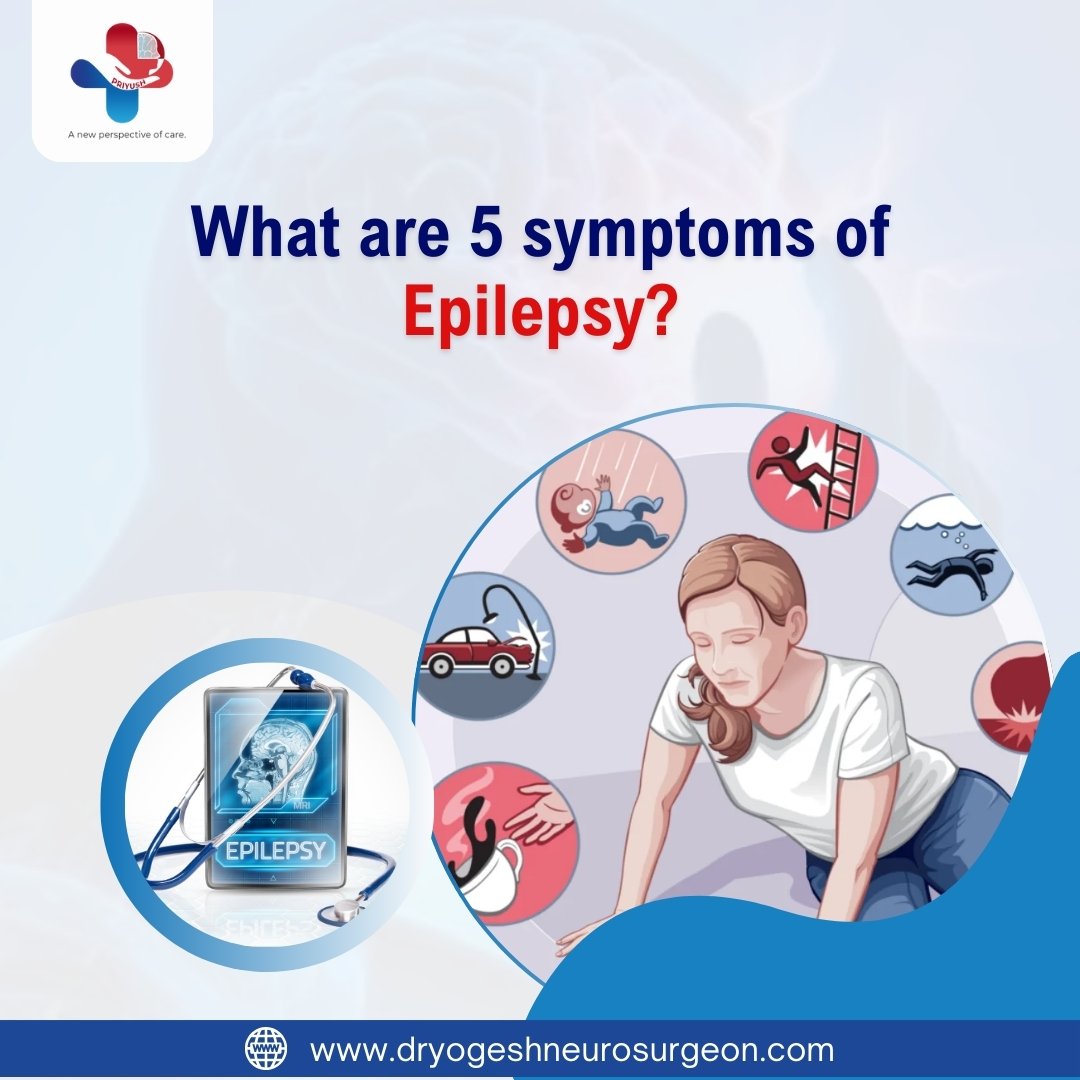 What are 5 symptoms of epilepsy?
What are 5 symptoms of epilepsy? -
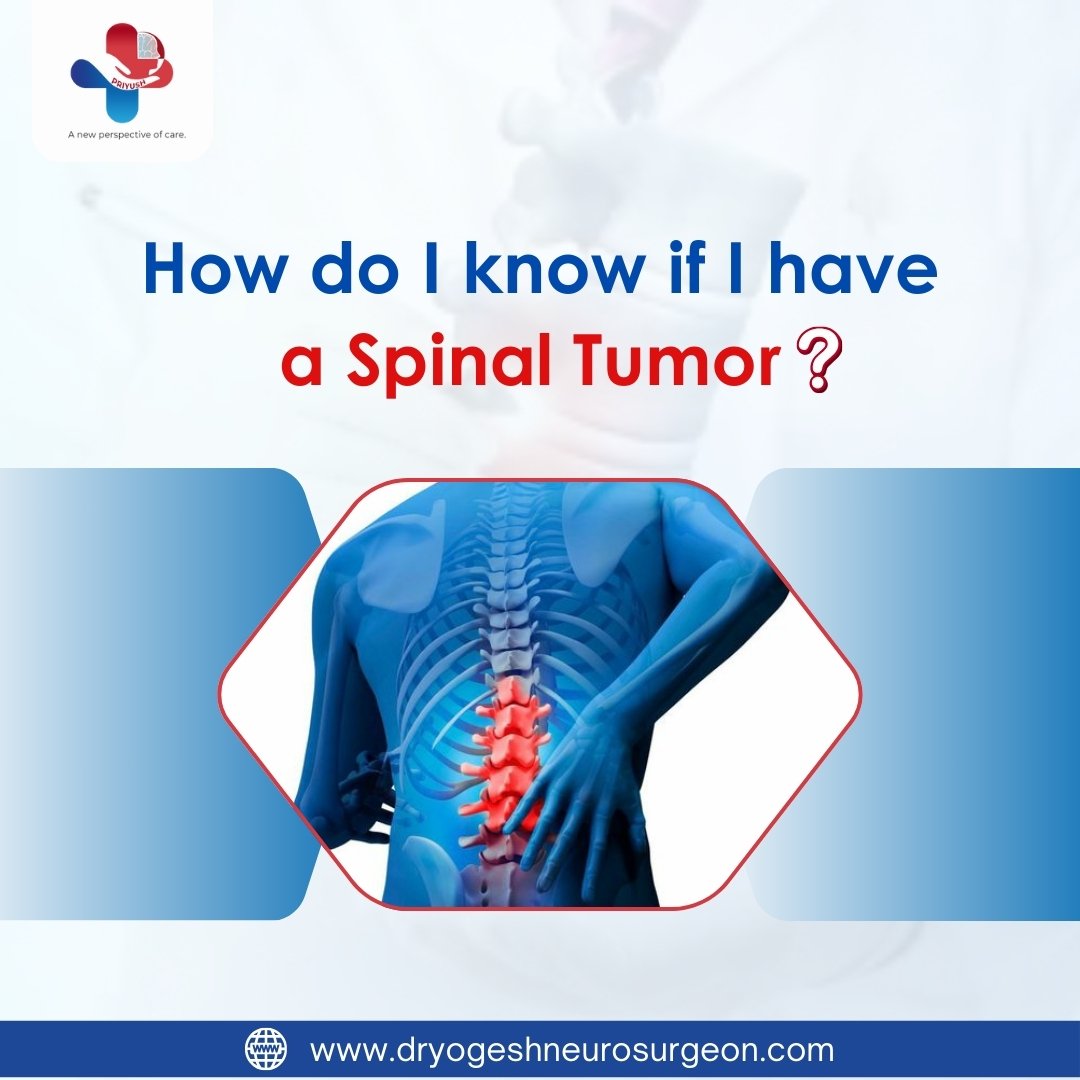 How do I know if I have a spinal tumor
How do I know if I have a spinal tumor -
 Which surgeon is best for spine surgery
Which surgeon is best for spine surgery -
 Who is best for spine surgery In India?
Who is best for spine surgery In India? -
 Who are some of the best neurosurgeons in India?
Who are some of the best neurosurgeons in India? -
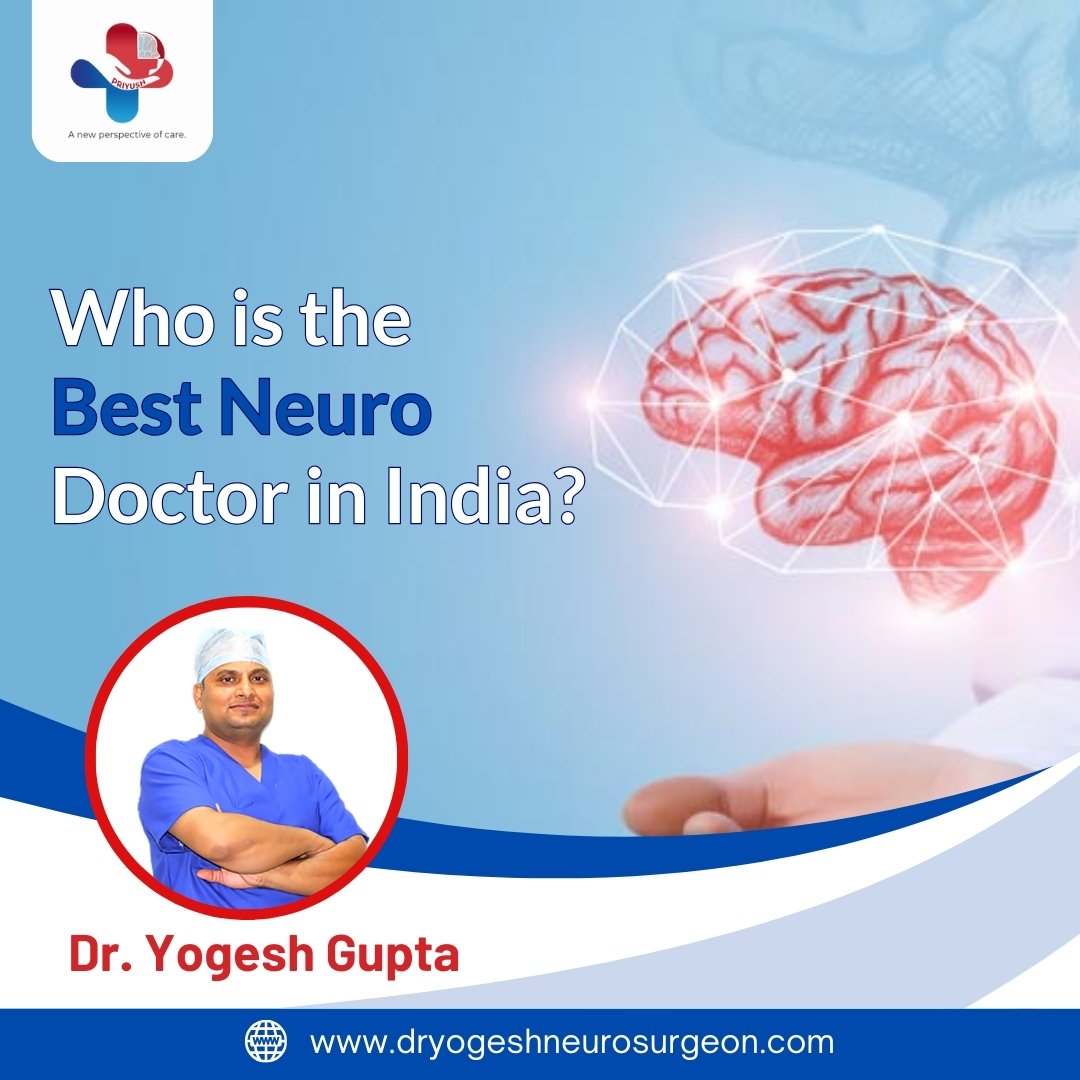 Who is the Best Neuro Doctor in India?
Who is the Best Neuro Doctor in India? -
 What are the causes of Alzheimer? How would it be cured?
What are the causes of Alzheimer? How would it be cured? -
 What is Alzheimer? What are its causes?
What is Alzheimer? What are its causes? -
 Who is a famous brain surgeon in India?
Who is a famous brain surgeon in India? -
.jpg) Who is the Best Neurosurgeon in India?
Who is the Best Neurosurgeon in India? -
 Revolutionizing Neurosurgery in India with Innovation, Expertise, and Compassion at Priyush Hospital
Revolutionizing Neurosurgery in India with Innovation, Expertise, and Compassion at Priyush Hospital -
 Who are the best neurologists in India
Who are the best neurologists in India -
 What do we do to cure Slipped Disc
What do we do to cure Slipped Disc -
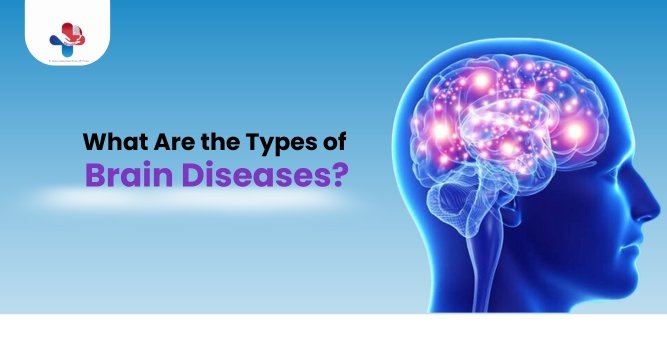 What Are the Types of Brain Diseases
What Are the Types of Brain Diseases
Click here to Know More About Dr Yogesh Gupta - -
- What are the causes of Alzheimer's? How would it be cured?
- What is Alzheimer's? What are its causes?
- Who is a famous brain surgeon in India?
- Who is the Best Neurosurgeon in India?
- Revolutionizing Neurosurgery in India with Innovation, Expertise, and Compassion at Priyush Hospital
- Who are the best neurologists in India
- What do we do to cure Slipped Disc
- What Are the Types of Brain Diseases
